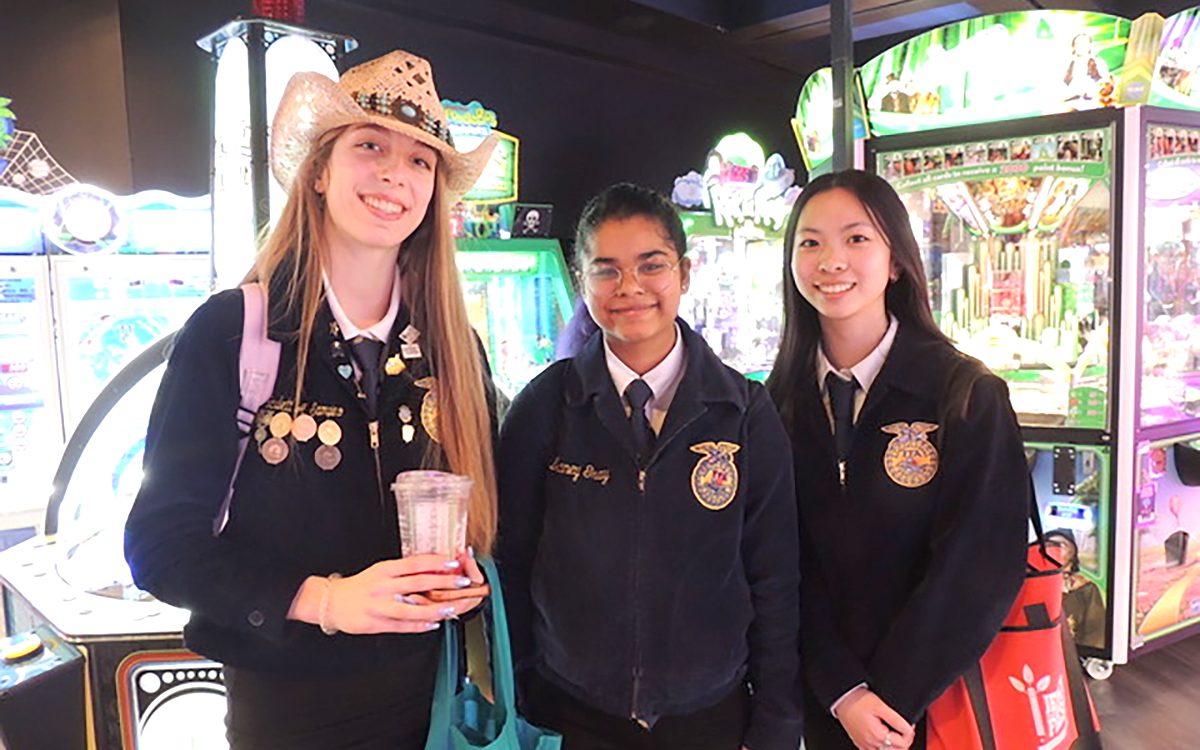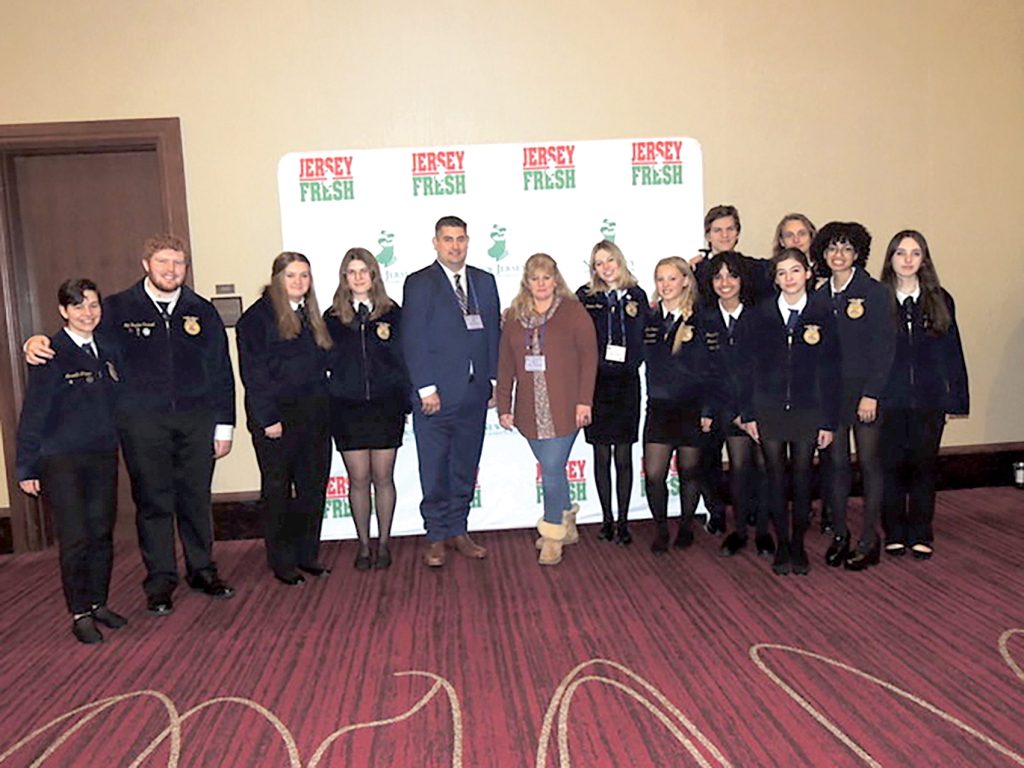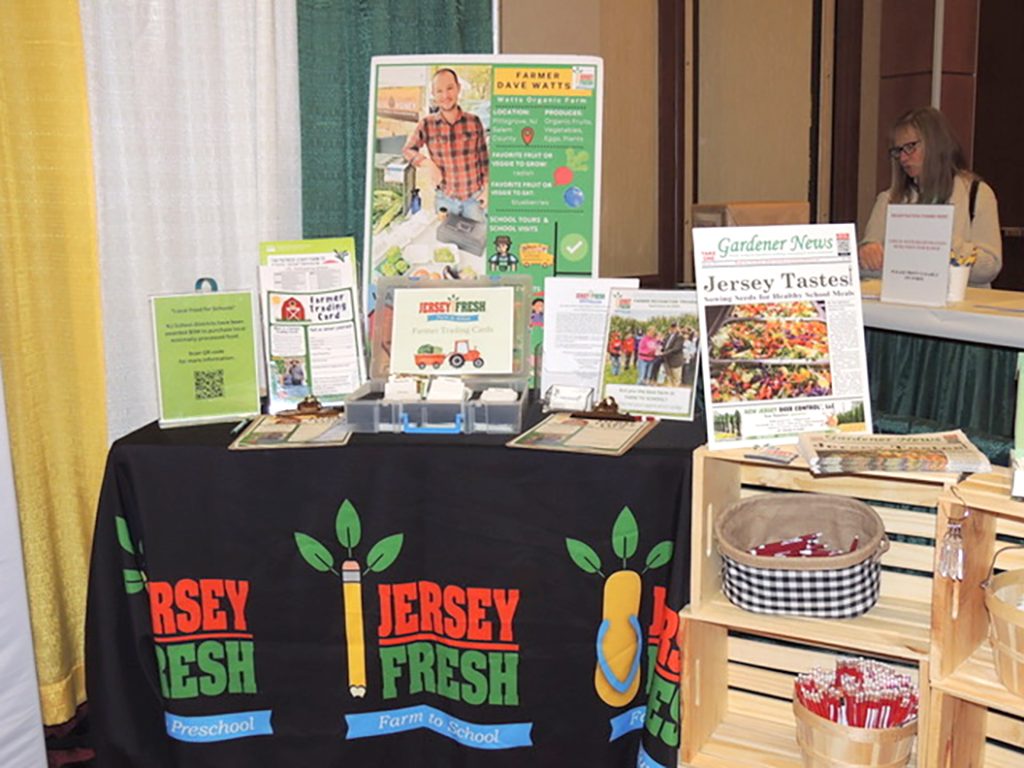
By Laura D.C. Kolnoski
ATLANTIC CITY – The future of farming in New Jersey depends on growth, especially the kind that brings an infusion of energy and ideas from new generations of humans and technology.
That was evident throughout the 2024 New Jersey Agricultural Convention & Trade Show held Feb. 6-8 at Harrah’s Resort in Atlantic City. Teenage members of Future Farmers of America (FFA) chapters from around the state, including Monmouth County, perused 70 exhibit booths, attended educational forums and spoke with agricultural and governmental leaders and innovators.
Hosted by the Vegetable Growers Association of New Jersey (VGANJ), in cooperation with the New Jersey Department of Agriculture and Rutgers Cooperative Extension, exhibitors featured an array of products, services and displays from organizations like the New Jersey Beekeepers, Jersey Fresh, Rutgers agricultural entities and the New Jersey Department of Environmental Protection. Showgoers examined cutting-edge tools, green systems, and the latest packaging options.

From peat moss, seeds and bio-nutrients to gleaming tractors, renewable energy and drones, myriad aspects of farming were represented. But VGANJ president Joel Viereck wants more.
“This event helps Garden State farmers grow better and more sustainable food, flowers and other agricultural products,” Viereck, a fourth-generation vegetable farmer in Gloucester County, told The Two River Times. “We want efficiencies, but also more young people who want to do it. There are fewer of us, and many farms have consolidated. We want to support the next generation and are looking for anyone who wants to get involved.”
Viereck is planning expanded outreach to wineries, distilleries and breweries, as well as on-farm retail activities like food trucks. “We’ve just scratched the surface of where we want to go with this show,” Viereck continued. “If you benefit from farming, we want you here, even if you come from outside New Jersey.”
Begun in the 1960s, the convention moved to Atlantic City in the 1980s and continued virtually during the pandemic. Participation rose this year with attendance reported at 700-plus. Workshops and education- al sessions focused on the latest in soil health, tree fruit orchards, produce and hemp production, specialty niche crops, agricultural technology and wine grape production. In addition to seasoned farmers and related businesspeople, presenters came from colleges and universities like Rutgers, Penn State, Maryland, Georgia, Cornell and Virginia Tech.
The convention also included an awards ceremony and charity auction benefiting Shriners Hospital.
The economics of modern farming was a pervasive topic, with U.S. Department of Agriculture representatives informing attendees of available government programs, while “learning from other exhibitors and showgoers,” said Nelly Nkengfack, USDA loan specialist. Mark Kiriluk, a senior loan officer with Farm Credit East, revealed he currently oversees 180 loans in Monmouth County.

“We finance land, houses, buildings, machinery, equipment and vehicles for farms,” Kiriluk said. “We also have operating lines of credit for annual expenses and capital lines of credit for capital expenses. We finance docks, boats and permits for the aquatic industry as well.”
“New Jersey has a diverse agricultural industry,” said Ben Casella of the New Jersey Farm Bureau, of which the Monmouth County Agricultural Board is a member. “Those who sell direct to the consumer, like farm stands, are experiencing a lot of opportunities. We’re trying to improve the viability of wholesale farmers facing competition from imports coming from places like Mexico and Peru.”
On the show floor, state Assembly member William Spearman (D-5), chairman of the new Assembly Commerce, Economic Development and Agriculture Committee, attended with a delegation to gather information for potential future legislation.
“The more we know about agriculture and food security, the better we can be at creating benefits for our farmers,” Spearman said.
To that end, Jersey Fresh is engaging youth with its Farm to School program promoting using state produce in school meals. The effort teaches the health benefits of eating locally grown fruits and vegetables, offers grants and awards, and sponsors Farm to School Week every September.
In Monmouth County, 10 boards of education participate, including Red Bank, Hazlet, Tinton Falls and the six high-school Freehold Regional High School District, which includes Colts Neck High School and its active FFA chapter. The township, still considered a farming community, boasts farms featuring equine riding, training and boarding facilities; specialty produce, orchards and nurseries; Christmas trees; field crops; animal sanctuaries; and distilleries, breweries and wineries.
Three showgoers, Monmouth County FFA members who requested only their first names be used, said they gained significant knowledge about the state’s agriculture and particularly enjoyed learning how to grow strawberries. The trio agreed they attended the convention to “support the industry and experience the trade show.”

Monmouth County’s Grown in Monmouth initiative, designed to help retain and expand the county’s agriculture endeavors, is also part of the Jersey Fresh program. Grown in Monmouth identifies new markets, connects growers with consumers, promotes preference for county-grown products, and provides business skills assistance. Directories are available on the website listing seasonal and other events, specific types of farms, Restaurant Week, wineries, farm stands, pick-your-own and more. Visit growninmonmouth.com. For more on the VGANJ and its annual convention, visit vganj.com.
The article originally appeared in the February 15 –21, 2024 print edition of The Two River Times.














